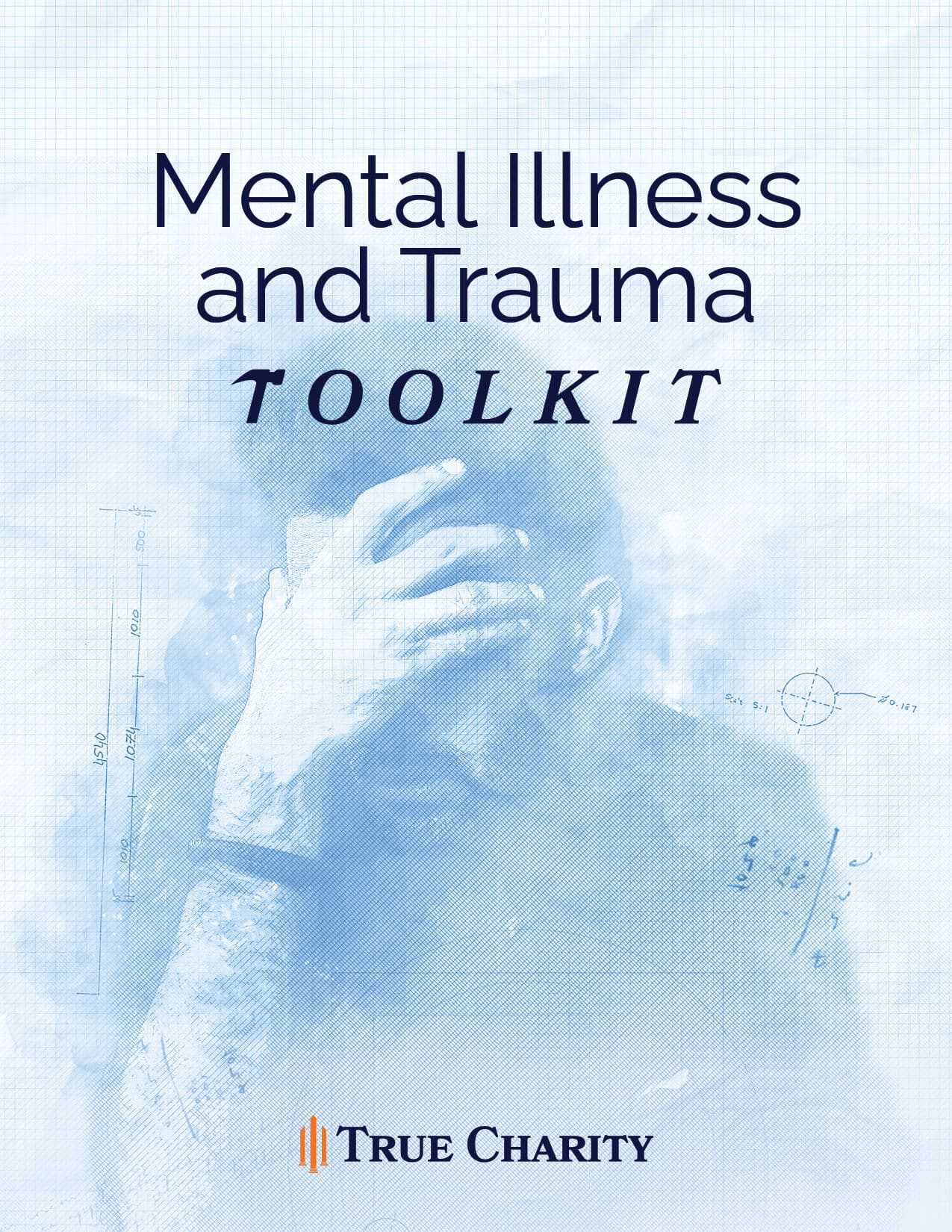Engaging Those With Mental Illness and Trauma From Within the Faith Community
 Bethany Herron
Bethany Herron
Instructional Designer
Read more from Bethany
“The baby is in the tree! We have to get him down.”
My father cried out in a panic as he tried to climb the tree to get “the baby” to safety. Meanwhile, my mom frantically called 911 and locked my siblings and me in the restroom with my baby brother sitting safely on my big sister’s lap.
The police showed up to intervene and took my father, who had been hallucinating, to yet another round of rehab.
My father fought addiction and depression for years. No matter how hard he tried to break free, his mental illness left him feeling hopeless. Yet, after 25 years of prayer, I had the privilege of watching him confess Christ as Lord. He was baptized by my husband at the beach while his grandchildren watched from the shore. It was the same beach where I used to sit as a teenager and cry out for God to fix the brokenness in our home. By the grace of God, my dad is nine months sober and walking with the Lord.
God was working through the pain for His glory and our good during those 25 years. The Church cared for my mother, siblings, and me so selflessly during that time. But, looking back, I never considered that the Church could have, and should have, cared for my dad as well.
Through my research on effectively caring for those in poverty, I have found three ways that churches are able to care for those who suffer from mental illnesses.
Expand your view of brokenness.
Dr. Brian Fidler, LPC at Restoration Counseling in Joplin, Missouri, teaches that “mental illness is just an expression of man’s brokenness.”
According to Steve Corbett and Brian Fikkert, a major area of brokenness lies in the area of broken relationships – with others, oneself, God, and the rest of creation – and this can be a factor in mental illness. Yet, oftentimes, our view of brokenness is too narrow. We see the sin the person commits against a Holy God. Yet, we fail to see the bondage they are in and the pain they have experienced from living in a painful and fallen world.
Since the fall of man, our nature has been one of sin. When working with those who are suffering from mental illness, take a step back to recognize that they are simply a broken person living in a broken world, and they desperately need a Savior—they are just like you and me.
Don’t be afraid to engage.
It doesn’t take a trained professional to simply engage. The church often takes one of two stances when engaging with those suffering from mental illness: They either engage beyond their ability or immediately turn to professional services.
Research in the realm of social prescribing is on the rise. This treatment relies on doctors “prescribing” involvement in the community for those suffering from depression. Results show that social prescribing yields greater results than antidepressant medications.
This should be no surprise as God has made us for community. From eternity past, the Trinity has existed in perfect community. Man, made in God’s image, has that same desire for deep community. The beauty of social prescribing was written into the very core of who we are.
Assume Nothing.
Joshua’s Place, a non-profit that focuses on ministering to children in poverty, recently shared with us the following story:
A student was on his phone during class–yet again. The teacher, having asked many times, took the phone out of the young boy’s hands, at which he became extremely overwhelmed and had a trauma response–an over-adaptive coping mechanism. Oftentimes, those experiencing trauma are “triggered” by an incident that takes away their sense of control–this is what the young boy experienced in this situation. After communicating with the student’s guardian, the teacher learned that while he was in foster care, his phone was the only means of communication he had with his aunt. His phone was his sense of safety.
Like this young boy, many individuals who walk through the door of your church have encountered traumatic experiences during their lifetime. These experiences, though unseen to the observing eye, are proven to leave a lasting impact on the neurological system. When engaging with individuals in your life and ministry, assume nothing. Oftentimes, we are quick to judge someone before listening to the story that brought them to where they are. Slow down and pull up a chair. Many people are walking around with trauma–waiting for someone to listen.
We are all broken people who are living in a broken world. Yet, Jesus heals and redeems. He is building his Kingdom, and the gates of hell will not prevail (Matthew 16:18). Therefore, we have to stop being afraid and boldly step into the lives of others–especially those suffering from mental illness and trauma. God’s people–the Church–can and should be agents of change. Let’s engage!
 Looking for more tools to help you engage more effectively with those experience mental illness? True Charity Network members have access to the Mental Illness and Trauma toolkit, which provides access to basic resources and training as it relates to those experiencing poverty. Network members can access the toolkit on the member portal. Non-members, learn more about the different toolkits we offer.
Looking for more tools to help you engage more effectively with those experience mental illness? True Charity Network members have access to the Mental Illness and Trauma toolkit, which provides access to basic resources and training as it relates to those experiencing poverty. Network members can access the toolkit on the member portal. Non-members, learn more about the different toolkits we offer.



Leave a Reply
Want to join the discussion?Feel free to contribute!